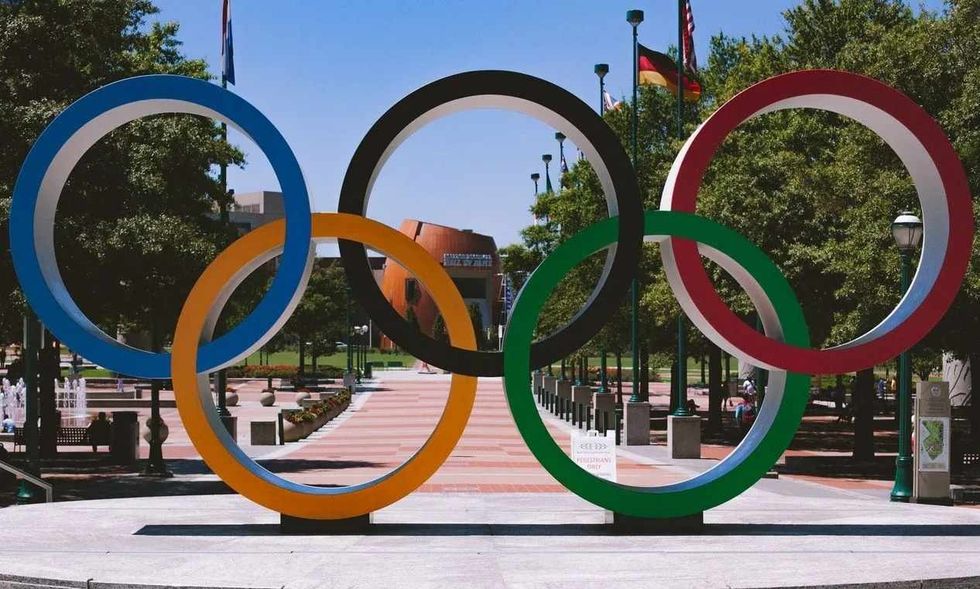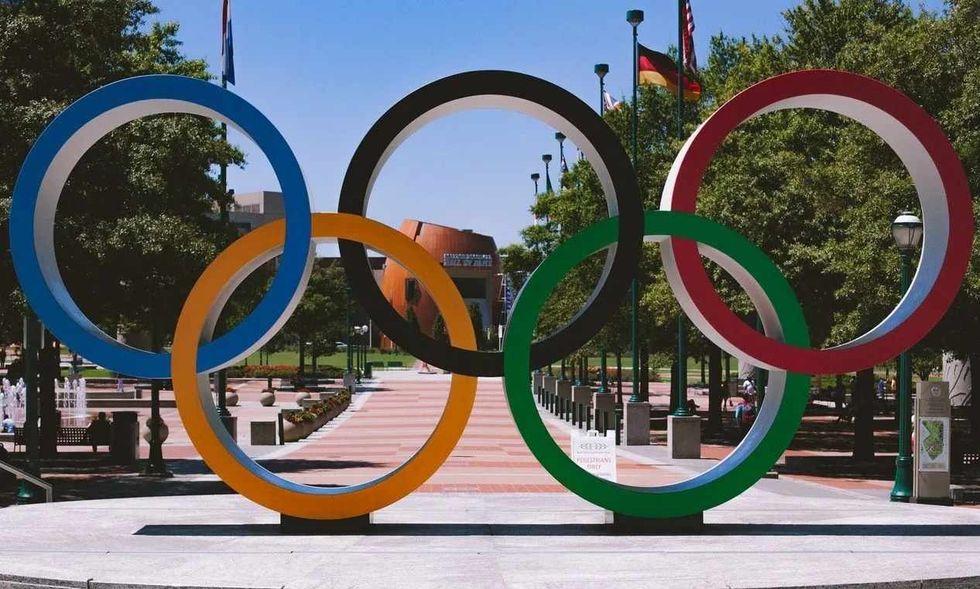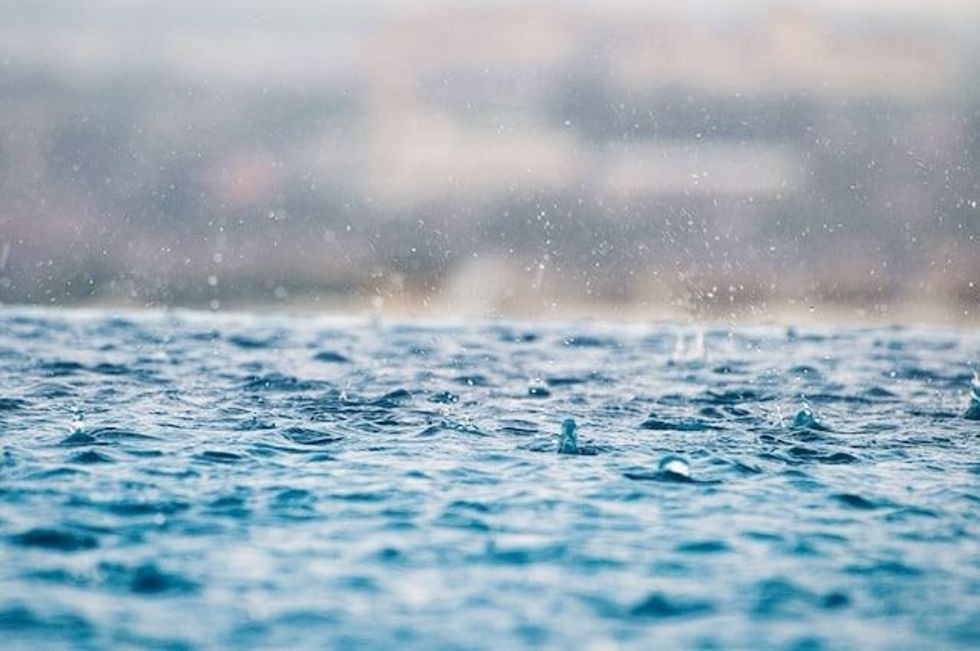Exciting Summer Olympics Facts That You Need To Know

Olympics games are a tradition that dates back to the time of the ancient Greeks and is one that the world still enjoys to this date.
The last Olympic games were conducted in 2016 from August 5–21 in Rio de Janerio. In 2020, they were scheduled to begin in Tokyo but got postponed to the next year with the onslaught of the coronavirus pandemic.
If you are an athlete, then your ultimate goal would be to win an Olympic medal, right? The mega international sporting event has had a dreamy aura for any athlete, and why wouldn't it? The national and international fame associated with it makes the Olympic games popular amongst people and athletes equally.
If you are keen on reading more facts about the Olympics, then dive into these interesting articles on 2016 Olympic facts and 2012 Olympics facts as well!
Sports In Summer Olympics
The summer Olympic games are, as everyone knows, a multi-sport, international event that's held in different countries every four years.
The Summer Olympics are also known by the name 'Games of the Olympiad'. It consists of various swimming events, high jump events, long horse (vault), beach volleyball, long jump table tennis, equestrian events, and other sporting games.
The first-ever summer games took place in Athens, Ancient Greece, in 1896, and the most recent one took place a little late in 2021 in Tokyo, Japan.
A designated committee called the International Olympic Committee (IOC) oversees all the preparations for the games in the host country.
The custom of receiving medals, gold for the winner, silver for the first runner-up, and bronze for the second runner-up, dates back to the ancient Olympics in 1904.The Winter Olympics were born out of the massive success and response from the crowd at the usual summer Olympic games.
The winter Olympic games are now recognized as the most prestigious part of the modern Olympic games.
In all, about 42 sports categories across 55 disciplines have been included in the history of the Olympic games. The Association of Summer Olympic International Federations (ASOIF), a federation of various Olympic sports, decides which Olympic sports will be included in the games.
The International Olympic Committee (IOC) has divided each Olympic event into five categories based on their internet popularity, press coverage, television viewing figures, ticket requests, and the number of national federations. The various such events include aquatics, athletics, cycling, weightlifting, volleyball, and side horse events.
Triathlon, golf, football, rugby, surfing, skateboarding, judo, rowing, shooting, badminton, boxing, gymnastics, karate, baseball, fencing, equestrian events, archery, tennis, basketball, and several other events.
Today's modern Olympic games have about 306 events (33 different sports, broadly classified as of the 2021 Olympics) with over 11,238 competitors (5,059 women and 6179 men) from more than 206 nations! But this was not the case during the ancient Olympic games, when there were a mere 42 sports events and fewer than 250 participants.
To date, the summer Olympic event has been hosted on five continents by 19 countries. London has been the country to host these games three times, and it is the only city to do so.
Los Angeles, Tokyo, Athens, and Paris have held the summer games twice.
In 2024, France will be hosting its third Summer Olympics in Paris, and Paris will thus become the second city in the world to have hosted the Olympics three times. Los Angeles would later host its third Olympics in 2028, making it the third city.
There has been a record of only five countries that have never missed any summer Olympics, namely, France, Switzerland, Australia, Greece, and Great Britain. In fact, Great Britain has won gold medals in every summer Olympic edition.
The United States has the record for the highest number of Olympic medals won at the Summer Olympics and has topped the Olympic medals list in 18 different sports. The United States is followed by the USSR (six times) and China, Germany, France, and Britain (once).
Here are a few facts about Summer Olympics to gather
The ancient Olympic games were held long ago, between 776 BC and 393 AD, but later on, they were stopped. They were then revived in Athens, Greece, on April 6, 1896.
After winning the triple jump event, James Connoly of the United States became one of the first Olympic champions.
At the first modern Olympic games, 241 athletes from 14 nations all over the world competed in 43 events for the coveted Olympic gold medals at the first modern Summer Olympics.
The famous Olympic flame was lit for the first time at Amsterdam's 1928 Olympic games.
Opening Ceremonies
The Olympics' opening ceremony is a sight to behold as the Olympic stadium lifts up in a celebratory mood. The ceremony represents the official commencement of the Olympic games.
No competitions began before the ceremony, but in the most recent modern Olympics (2008 Summer Olympics), a few football competitions started before the magnificent ceremony. In fact, the Winter Olympics conducted in 2014 were the first modern Olympics to hold sports events before the opening ceremony.
But how did the Olympic ceremony become a major part of the Olympics? Let's find out.
The Olympic Charter mandates the entire proceedings of the opening ceremony, and no-host nation can change its rules and regulations. The International Olympic Committee (IOC) approves all the rituals and proceedings of both the opening and closing ceremonies.
Various elements, like the lighting of the Olympic flame, take place. Most of these proceedings were canonized in 1920 during the Summer Olympics in Belgium.
From the ancient Olympic games, the opening, closing, and medal ceremonies have been an important part of the Olympic Games ceremonies.
Some of the ceremonies date back to games played in Athens, Greece, where the modern Olympics began after being revived. Greece, particularly, shows a lot of prominent performances in these ceremonies.
An example of Greece's involvement in these ceremonies could be traced back to the 2004 Olympic Games, where the medal winners received an olive branch crown and olive wreaths instead of gold, silver, or bronze medals, therefore directly referring to the ancient games played in Greece.
The opening ceremony has changed and evolved over three centuries! Yes, that's how long the Olympic games have been played.
It's surprising, isn't it? The ancient games used these ceremonies to demarcate the start and end of the Olympic games.
Over time, there have been changes between how the ceremonies were conducted during the ancient games and how they are conducted during the modern Olympics. In today's modern Olympics, several technological endeavors, along with each host nation's distinct artistic expression, are involved.
Still, the basic events to be carried out remain the same in every game. The primary presentation of both the closing and opening ceremonies continues to rise and increase in terms of expenses, scale, and scope without forgetting the basic tradition of the games that have been carried out for three centuries.
For the 2028 Los Angeles Olympics, the organizers are now proposing to use two stadiums to stage the closing and opening ceremonies, which will be a first in the history of the games. Something that you should definitely look forward to!
Next Summer Olympic
The process by which the next nation to host the Olympics is decided is quite fascinating. It is actually a bidding process that starts years before the actual event, as a sporting event of the stature of the Olympics needs years of preparation before the actual games.
Let's look at this process and the dates and venues for the next Summer Olympic.
The next Summer Olympics will be held in the year 2024, and the bidding process began in 2015! Five cities gave in their candidature for hosting the games, but out of them, three cities withdrew midway.
Hamburg, Budapest, and Rome backed out, leaving Los Angeles and Paris to contend with. This resulted in a concurrent decision to elect cities as hosts for both the 2024 and 2028 Olympics.
On July 11, 2017, in Lausanne, the International Olympic Committee decided unanimously to elect the cities for the next two forthcoming Olympics.
On the 31st of the same month, the International Olympic Committee negotiated a deal to consider Paris hosting the 2024 Olympics and Los Angeles the 2028 Olympics. A formal announcement took place on September 13, 2017, at the 131st IOC session in Lima, Peru.
The reasons given for the withdrawals of Rome, Budapest, and Hamburg were deterring costs for the games and political uncertainty. Hamburg withdrew on November 29, 2015, following a referendum.
On September 21, 2016, Rome attributed its withdrawal to financial difficulties, and Budapest followed suit on February 22, 2017, following a referendum as well, as a petition against the bid received more than the required number of signatures.
After these successive withdrawals, the executive board of the International Olympic Committee met in Lausanne, Switzerland, to discuss the future Olympic host cities.
The proposal to elect the two hosts consecutively for the 2024 and 2028 Olympics was passed by an extraordinary IOC Session as a result of these withdrawals. The International Olympic Committee put their respective procedures into action when Los Angeles and Paris bid to decide on which country would host the 2024 and 2028 Olympics.
It was unusual for the IOC to decide on two cities for two Olympics, but an exception was made in view of other circumstances.
Following the decision to decide hosts for the next two games, Paris was deemed to be the most suitable host for 2024. On July 31, 2017, the International Olympic Committee declared Los Angeles to be the only candidate for the 2028 Olympics. Both these announcements were ratified on September 13, 2017, in the 131st International Olympic Committee Session.
The next 2024 Summer Olympics are scheduled to be held from July 26, 2024, to August 11, 2024, in Paris, France. The name of this Olympics is also officially called the Games of the XXXIII Olympiad ( also known in French as Jeux de la XXXIII Olympiade).
Paris would be hosting the Olympics for the third time, after previously hosting the games in 1900 and 1924.
It will be the second city to host the Olympic Games thrice after London, which hosted the games in 1908, 1948, and 2012. The 2024 games would mark the 100th anniversary of the Paris Games of 1924 and the sixth time France had hosted three summer and three winter Olympics.
Fun Facts About Summer Olympics
Every four years, the grand international sporting event that brings together several countries and their athletes is held. The Olympics have often been nicknamed the games, and every time a different city plays host, it is always a great honor for any city to be given the opportunity to hold the games.
Let's look at some fun facts about these host cities and the Olympics itself!
It is known that the Olympics happen every four years, but did you know that there was a time when they had to be canceled too? Yes, three modern Olympic Games have been canceled due to World War One and World War Two. One of them was the one to be conducted in London.
The Olympic rings are symbolic of the games, but did you know that at least one of the colors appearing on each of the rings also appears on any nation's national flag?
This was the motive behind Baron Pierre de Coubertin, the creator of the Olympic rings concept, suggesting that the colors blue, yellow, red, green, and black (along with the white backdrop) be used to denote the rings, as it would indicate equal representation of every country that participates in the games.
Coubertin also won his first gold medal for literary accomplishments like these.
At least one gold medal in any Summer Olympics is not an easy feat, but athletes from Great Britain have proven otherwise!
Until 2012, the USA held the record for winning more medals (976 gold medals, 666 bronze medals, and 758 silver medals) than any other country participating.
Eagan, an athlete, won a gold medal in two different sports disciplines, one in boxing and the other in a bobsled event in the winter games.
Did you think any athlete could represent two nations in the games? It looks like it was for Daniel Carrol and Kakhi Kakhiashvili!
Not in the same year, though. Daniel Carrol played for Australia in rugby and won his first gold medal, and then, in 1920, he represented the United States. Kakhi Kakhiashvili was a part of the Unified Team for men's weightlifting in the 1992 Olympics but then appeared as a Greek citizen for the 1996 and 2000 games.
Speaking of gold medals, were you aware that for more than a century, the gold medals to be presented to the winners were not actually made of pure gold?
These gold medals are, in fact, made of silver with just the addition of a mere 0.2 oz (6 g) of pure gold to make them different from the gold medal. As a matter of fact, the medals awarded in the recent Tokyo Olympics were made of 80,000 tons (80 million kg) of recycled waste!
It's quite an eco-friendly approach, don't you think so?
The tradition of giving silver, bronze, and gold medals was started in 1904.
Bikila was the first African to win a gold medal in the games for running barefoot for 26 mi (41.84 km)!
Michael Phelps, the American ace swimmer, is the most decorated Olympian. Phelps has 28 medals to his record, including a whopping 23 gold medals!
Greek gymnast Dimitrios Loundras is the youngest ever Olympic athlete to compete at the age of only 10! At the 1896 Athens Olympics.
The US also holds another Olympic record by holding more Summer Olympics than any other country in the world. A total of four comprises the 1904 St Louis Olympics, the 1996 Atlanta Olympics, and the 1984 and 1932 Los Angeles Olympics.
In the first modern Olympics, Athens was the host city in 1896, with participation from 13 countries and 280 athletes in 43 track and field events.
The 2012 London Olympics saw female athletes from every participating country, a remarkable feat for women.
Someity is the name of a Paralympic mascot that is inspired by a famous cherry blossom plant, Someiyoshino, and the phrase so mighty. It represents the mental endurance and physical strength of Paralympic athletes who strive towards winning despite their physical limitations. This is a very encouraging gesture from the Olympics.
French and English are the Olympics' official languages, along with the host country's language, which changes every four years.
The US flag was not present at the 1908 London Olympics because the Americans refused to dip their flag for the then-King Edward VII.
The duration of the Olympics is usually 16 days, with most track and field events being conducted in the first week of the games.
Here at Kidadl, we have carefully created lots of interesting family-friendly facts for everyone to enjoy! If you liked our suggestions for exciting summer Olympics facts that you need to know, then why not take a look at gymnastics Olympic medals or ancient Olympic facts.
We Want Your Photos!
More for You
Bachelor of Science specializing in Botany, Master of Science specializing in Clinical Research and Regulatory Affairs

Sridevi ToletyBachelor of Science specializing in Botany, Master of Science specializing in Clinical Research and Regulatory Affairs
With a Master's degree in clinical research from Manipal University and a PG Diploma in journalism from Bharatiya Vidya Bhavan, Sridevi has cultivated her passion for writing across various domains. She has authored a wide range of articles, blogs, travelogues, creative content, and short stories that have been published in leading magazines, newspapers, and websites. Sridevi is fluent in four languages and enjoys spending her spare time with loved ones. Her hobbies include reading, traveling, cooking, painting, and listening to music.
Bachelor of Arts specializing in English Literature

Nishtha DixitBachelor of Arts specializing in English Literature
Nishtha is an experienced SEO writer and editor, with a passion for writing and self-expression. She is currently pursuing an undergraduate major in Literature and Communication and a minor in Political Science from the University of Delhi. Nishtha has completed a certificate master course in English from the British Council and has been appointed as the editor for the bi-monthly magazine of the University of Delhi.
Disclaimer
1) Kidadl is independent and to make our service free to you the reader we are supported by advertising. We hope you love our recommendations for products and services! What we suggest is selected independently by the Kidadl team. If you purchase using the Buy Now button we may earn a small commission. This does not influence our choices. Prices are correct and items are available at the time the article was published but we cannot guarantee that on the time of reading. Please note that Kidadl is a participant in the Amazon Services LLC Associates Program, an affiliate advertising program designed to provide a means for sites to earn advertising fees by advertising and linking to Amazon. We also link to other websites, but are not responsible for their content.
2) At Kidadl, we strive to recommend the very best activities and events. We will always aim to give you accurate information at the date of publication - however, information does change, so it’s important you do your own research, double-check and make the decision that is right for your family. We recognise that not all activities and ideas are appropriate for all children and families or in all circumstances. Our recommended activities are based on age but these are a guide. We recommend that these ideas are used as inspiration, that ideas are undertaken with appropriate adult supervision, and that each adult uses their own discretion and knowledge of their children to consider the safety and suitability. Kidadl cannot accept liability for the execution of these ideas, and parental supervision is advised at all times, as safety is paramount. Anyone using the information provided by Kidadl does so at their own risk and we can not accept liability if things go wrong.
3) Because we are an educational resource, we have quotes and facts about a range of historical and modern figures. We do not endorse the actions of or rhetoric of all the people included in these collections, but we think they are important for growing minds to learn about under the guidance of parents or guardians.







